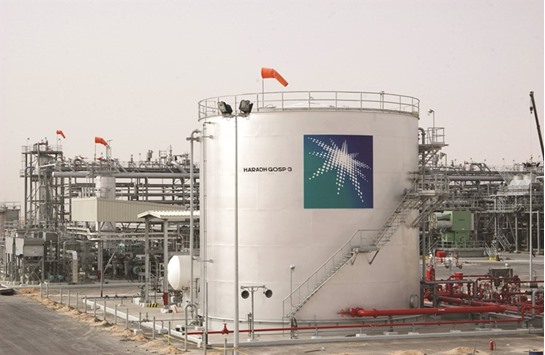Cutting government spending and reducing subsidies are necessary steps for oil-rich Gulf nations to adjust to the “new reality” of lower crude prices, though they will also squeeze economic growth in the short-term, according to the International Monetary Fund.
The IMF warned in October that Saudi Arabia, Oman and Bahrain risked draining financial assets within five years if governments maintained their existing spending. All three have since cut energy subsidies after years of debate, while Saudi Arabia has also reduced support for water and electricity and is considering new forms of taxation and privatising state assets, including an initial public offering for state-run Saudi Arabian Oil Co.
Saudi Arabia’s fiscal consolidation has been more ambitious and speedier “than what had been anticipated earlier, and one of the consequences will be to see dampening effect on non-oil growth,” the IMF’s Middle East chief Masood Ahmed said in a phone interview. Non-oil economic growth in the kingdom is expected to slow to about 1% this year and just over 2% next year, compared with 3.5% in 2015, he said.
“This consolidation, along with the other measures that have been signalled on privatisation and restructuring of the economy, should also lay the basis for stronger growth,” Ahmed said. The measures are “a set of actions that we think are necessary given the new reality of lower oil prices,” he said.
The price of Brent crude has fallen by more than 40% since the IMF’s October warning, and the market’s fundamentals point to a “low-for-long scenario for oil,” the IMF said on Tuesday.
The slump saddled Saudi Arabia, the world’s largest oil exporter, with a budget deficit of about $98bn last year. It may narrow in 2016 to about 14% of economic output from 16%, depending on what happens to oil prices, Ahmed said.
Overall economic growth will slow to 1.2% this year, the IMF said in an update to its World Economic Outlook on Tuesday. That’s still more optimistic than HSBC, which expects the biggest Arab economy to expand 0.8%. Growth was 3.4% in 2015.
Speculation has also mounted that Saudi Arabia may be forced to abandon its 30-year-old currency peg, with a key indicator showing bets for a riyal devaluation reaching the highest level since 1996 earlier this month. Central bank governor Fahad al-Mubarak said that was due to “misperception” about Saudi Arabia’s economic situation, and pledged to keep it.
Even so, the Saudi Arabian Monetary Agency has told banks to stop selling currency products that allow investors to make cheap bets on a devaluation, according to five people with knowledge of the matter.
The peg “has served Saudi Arabia well” and it is neither “appropriate or necessary” for it to be changed, Ahmed at the IMF said.

Saudi Arabia has reduced support for water and electricity and is considering new forms of taxation and privatising state assets, including an initial public offering for state-run Saudi Arabian Oil Co
